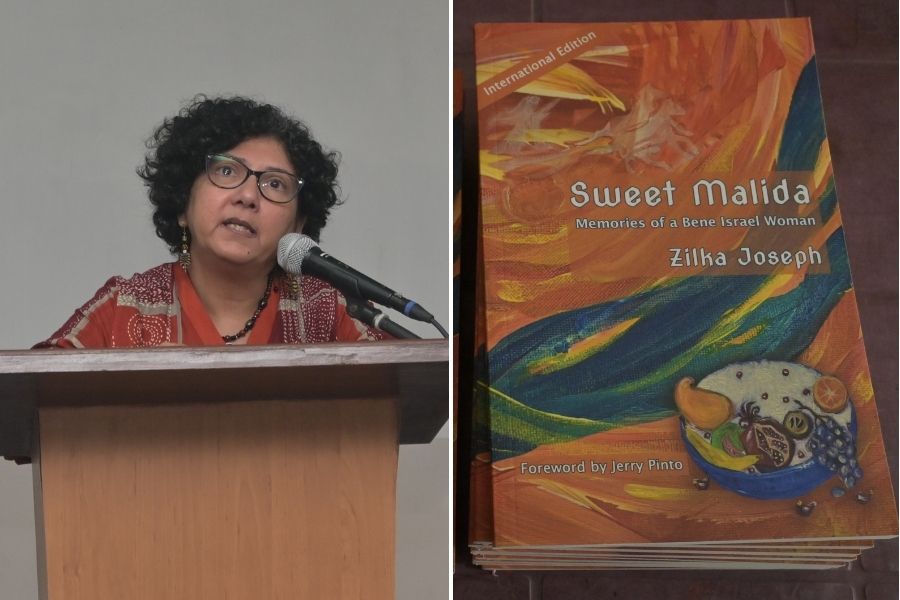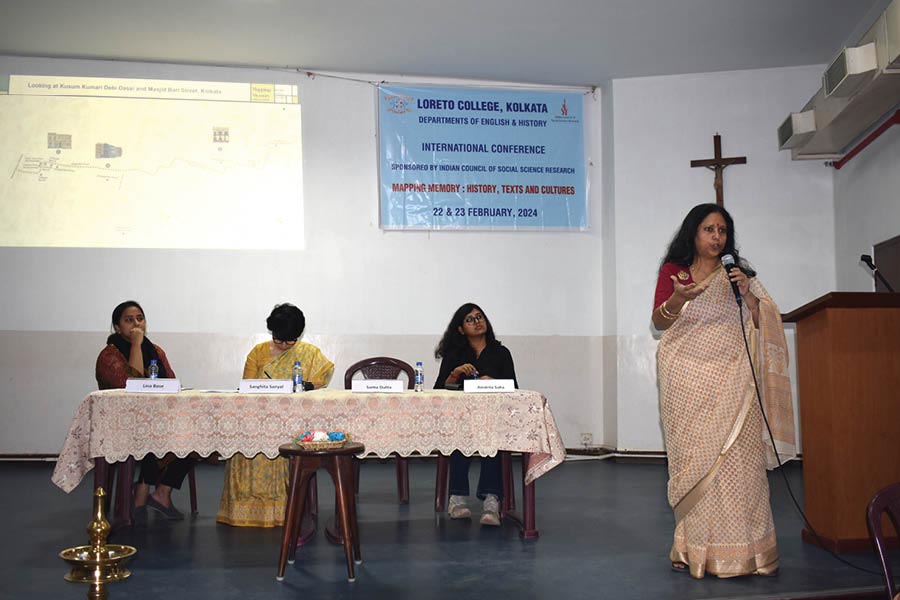While the West is primarily home to the Ashkenazi Jews, there are three different Jewish communities that reside in India, albeit in small numbers. They comprise the Cochin Jews, who are Sephardic, a community that fled persecution in the Iberian peninsula; the Baghdadi Jews, whose synagogues (such as the famous Magen David here in Kolkata) speak of a certain trade prosperity; and the Bene Israel, a community that developed along the Konkan coast, where they were shipwrecked (in 175 BCE, sometime in the 10th century, or in 70 CE, according to various theories). In her book, Sweet Malida: Memories of a Bene Israel Woman (Mayapple PR), poet Zilka Joseph unpacks the cultural memory of her community through a mix of poetry and prose, intermeshing personal experience with the larger history of a people.
‘His chariot was once supposed to have landed upon a rock in the Western Ghats’
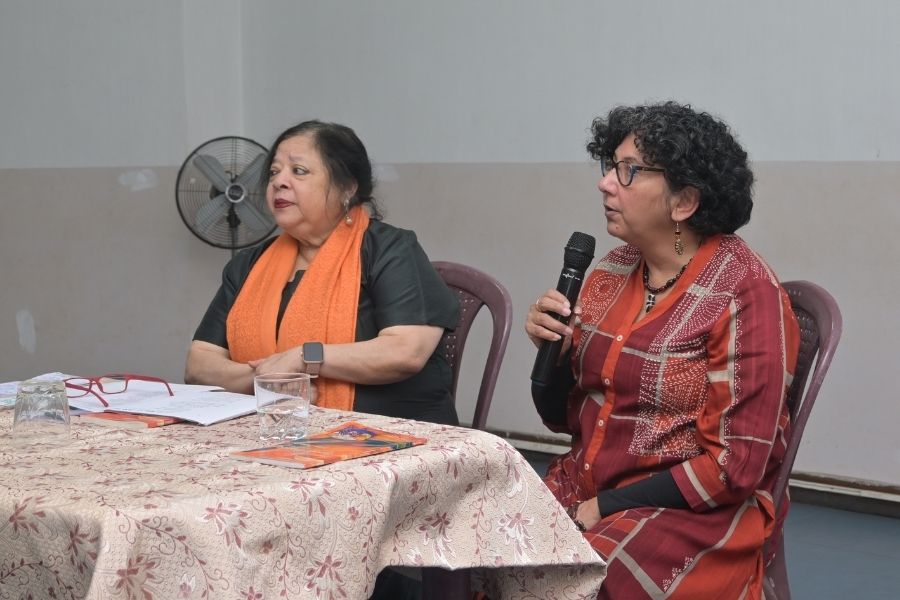
Joseph and Julie Banerjee Mehta, who moderated the discussion
Sweet Malida was launched recently at an event organised by Loreto College’s department of English, where Joseph herself had studied. At the gathering, which marked the US-based Joseph’s return to Kolkata for the first time since her mother’s passing in 2012 — “I was born in Mumbai but I always tell people I’m a Kolkata girl” — she read some excerpts from the volume. She also spoke at length about invoking the vernacular, and the various cadences, formal experiments and cultural specificities that have come to shape her book, named after a beloved dish from her childhood called malida:
…juicy threads
with a fleck of stubborn
brown kernel here and there
that sometimes crunched
in your teeth like sand,
and you winced and swallowed it,
knowing that there was no
simpler or purer
or truer form than that.
Joseph noted the ways in which Jewish mythologies and religious beliefs have come to mingle with the customs and bequests of the Konkan in shaping the identity of her community. She shared that the Bene Israel (of whom the poet Nissim Ezekiel was one) are said to have arrived at Navgaon in Alibaug, where an ancient cemetery, whose history remains untraced, is believed to have the graves of the earliest Indian settlers from the community. Joseph proceeded to read out a poem invoking Prophet Elijah, saying: “His chariot was once supposed to have landed upon a rock in the Western Ghats.”
‘There is a vividness in your writing that made me tremble’
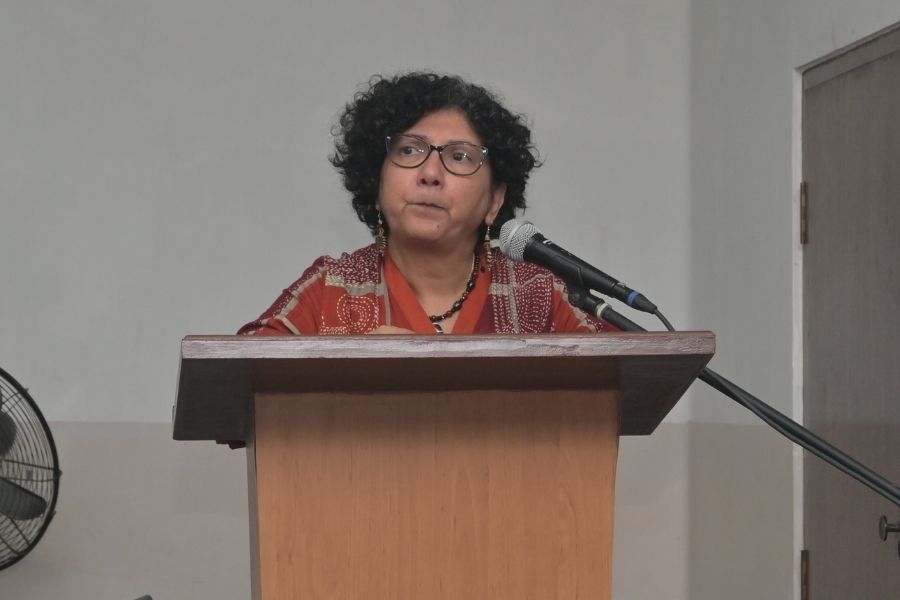
Joseph spoke of the various literary devices she has deployed in her book
The event was well-attended by Loreto’s students and faculty, alongside writers, scholars and sundry alumnae. Addressing the students, Joseph said: “I hope you will study the hybrid forms I have employed in this work — alternating couplets, asides in parentheses evoking ancestral voices, and a range of devices that seek to reflect the rhythms of the malida ceremony.” A student in the English department commented on the poem Leaf Boat, which begins with the evocative lines: “In my dream, the whales are singing/ my body, a leaf boat/ lamp floated on water”. “I couldn’t help but be reminded of The Tempest. There is a vividness in your writing that made me tremble,” she remarked to Joseph, who thanked her and said: “Then the poetry is doing its job!” Harish Mehta, an academic in the audience, asked why the Bene Israel had set out on those ships in the first place, to which Joseph said that most historians believed it was to flee the Greek emperor Antiochus IV Epiphanes.
The moderator for the session was Julie Banerjee Mehta, whose insightful observations pertaining to the emotional quantum of food cultures as also the book’s intertextual nods to TS Eliot and “his drowned Venetian soldier” contextualised the literary legacies within which Joseph’s writing is embedded. Banerjee Mehta also asked: “In the wake of what’s been happening in the Middle East, is this the right moment to write your cultural history?”
The question and the subsequent dialogue probed the gathering to think about the ways in which Israel’s genocide in Gaza has affected the moment we find ourselves in, and how that reconstitutes our expressive and narratorial responsibilities.
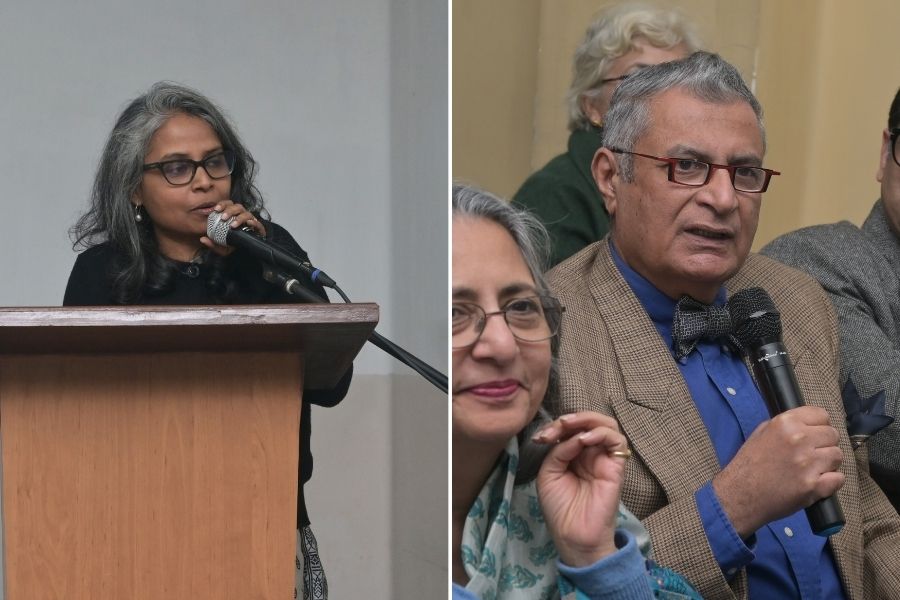
(L): Sukanya Dasgupta; (R): Harish Mehta
Commenting on the event, Sukanya Dasgupta, head of the department of English at Loreto College, said: “We were very happy to host our alumna, whose poetry weaves together diverse cultural strands as a Bene Israel woman and a diasporic writer.”
